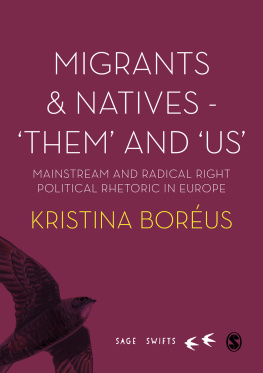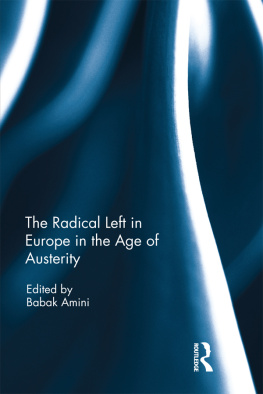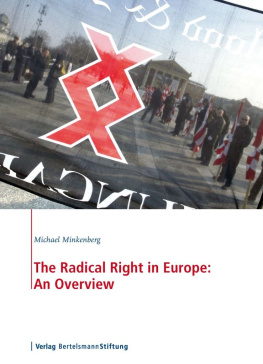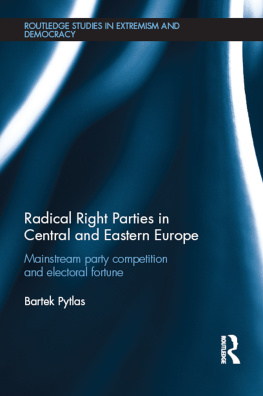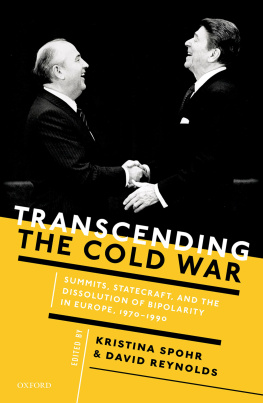SAGE Publications Ltd
1 Olivers Yard
55 City Road
London EC1Y 1SP
SAGE Publications Inc.
2455 Teller Road
Thousand Oaks, California 91320
SAGE Publications India Pvt Ltd
B 1/I 1 Mohan Cooperative Industrial Area
Mathura Road
New Delhi 110 044
SAGE Publications Asia-Pacific Pte Ltd
3 Church Street
#10-04 Samsung Hub
Singapore 049483
Kristina Borus, 2021
Apart from any fair dealing for the purposes of research or private study, or criticism or review, as permitted under the Copyright, Designs and Patents Act, 1988, this publication may be reproduced, stored or transmitted in any form, or by any means, only with the prior permission in writing of the publishers, or in the case of reprographic reproduction, in accordance with the terms of licences issued by the Copyright Licensing Agency. Enquiries concerning reproduction outside those terms should be sent to the publishers.
Library of Congress Control Number: 2020945407
British Library Cataloguing in Publication data
A catalogue record for this book is available from the British Library
ISBN 978-1-5264-7503-9
eISBN 978-1-5264-8630-1
Editor: Jai Seaman
Assistant editor: Charlotte Bush
Production editor: Prachi Arora
Copyeditor: Sarah Bury
Proofreader: Clare Weaver
Indexer: Martin Hargreaves
Marketing manager: Ben Sherwood
Cover design: Wendy Scott
Typeset by: C&M Digitals (P) Ltd, Chennai, India
Printed in the UK
At SAGE we take sustainability seriously. Most of our products are printed in the UK using responsibly sourced papers and boards. When we print overseas we ensure sustainable papers are used as measured by the PREPS grading system. We undertake an annual audit to monitor our sustainability.
Introduction Making natives us and migrants them in European politics
As part of the campaign for Denmarks general elections in 1994 a former Danish Minister of Foreign Affairs and leader of the Danish right-wing party Venstre stated:
We need to make the rules stricter in regard to the increasing number [of people] who come with clearly unfounded asylum applications. We need to send them home straight away and not let them linger for months and spend a lot of money on them here. That goes for criminals. If one commits crimes after having been granted asylum, one has to go home. This also goes for those who go on holidays or make other kinds of visits to the country they have fled from. (Svar nu. Venstre, 1994)1
1. Uffe Elleman Jensen in the partys election video, broadcasted before the public service DR interview with party representatives. This and all following translations of campaign material are the authors.
Stricter asylum rules were proposed and refugees were associated with attem-pted abuse of the asylum system and criminality in central party election propaganda. The we of the quote need to do this, because the people in question cost us money and the criminality of some of them presumably threatens us. The statement thus clearly differentiates between us in Denmark and the others, the asylum seekers, who are a potential threat to our economy and law and order.
The next quote is drawn from a Danish social democrats programme on integration policy, launched in 2018, the year before the general elections of 2019. Like the first quote it is presented much as a direct message from the party leader:2
2. The front page of the booklet carries a photo of Mette Frederiksen, the party leader.
...there are unfortunately also too many [of those who moved to Denmark] who are ideological opponents to our democracy and social values and who counteract them where they can [...] Here, the reply should be simple: Either they become part of Denmark with all of what that entails. About contributing to society and supporting our basic democratic values. Or else they find another place to live that is more in accordance with their values. (Socialdemokratiet 2018: 30)
The policy proposals here are less clear than in the first quote: a number of immigrants to Denmark should get the reply that unless they become part of Denmark, contribute to society and support our basic democratic values they are no longer welcome in the country. The reason is that too many of them oppose and counteract Danish democracy and values, which is clearly an inferior and threatening way of being an inhabitant in Denmark. While the first quote puts a certain perspective on immigration policy the policies for who should be let in and allowed to stay this quote is about what is usually referred to as integration policy, in a broader sense the issue of how people should live together. This quote too draws on a sharp us and them divide: there is a we, who have our basic democratic values, and there are they with their values. Although it is not crystal clear who should be included in the us and them groups, it is about a Danish we and some migrants to Denmark who, albeit perhaps having lived in Denmark for decades, do not belong there.
The two quotes represent certain perspectives, particular ways of conceptualising the social world, on policies related to immigration and migrants. The first is about immigration and conceptualises asylum seekers as potential threats. I refer to this perspective as the threat perspective on refugee immigration policy or just the threat perspective on refugee immigration. The second quote reflects a perspective on what takes place after immigration. I refer to it as the native dominance perspective on integration policy or the native dominance perspective on integration. Both perspectives have alternatives that do not draw on the idea that migrants are threats to us or that our views are necessarily superior to theirs.
The threat perspective on refugee immigration and the native dominance perspective on integration seem to be increasingly important in the politics of several European countries. This is a dangerous phenomenon and a main topic of this book, which analyses political rhetoric on immigration and migrants. The setting is current Western Europe with a particular focus on three European countries: Austria, Denmark and Sweden.

